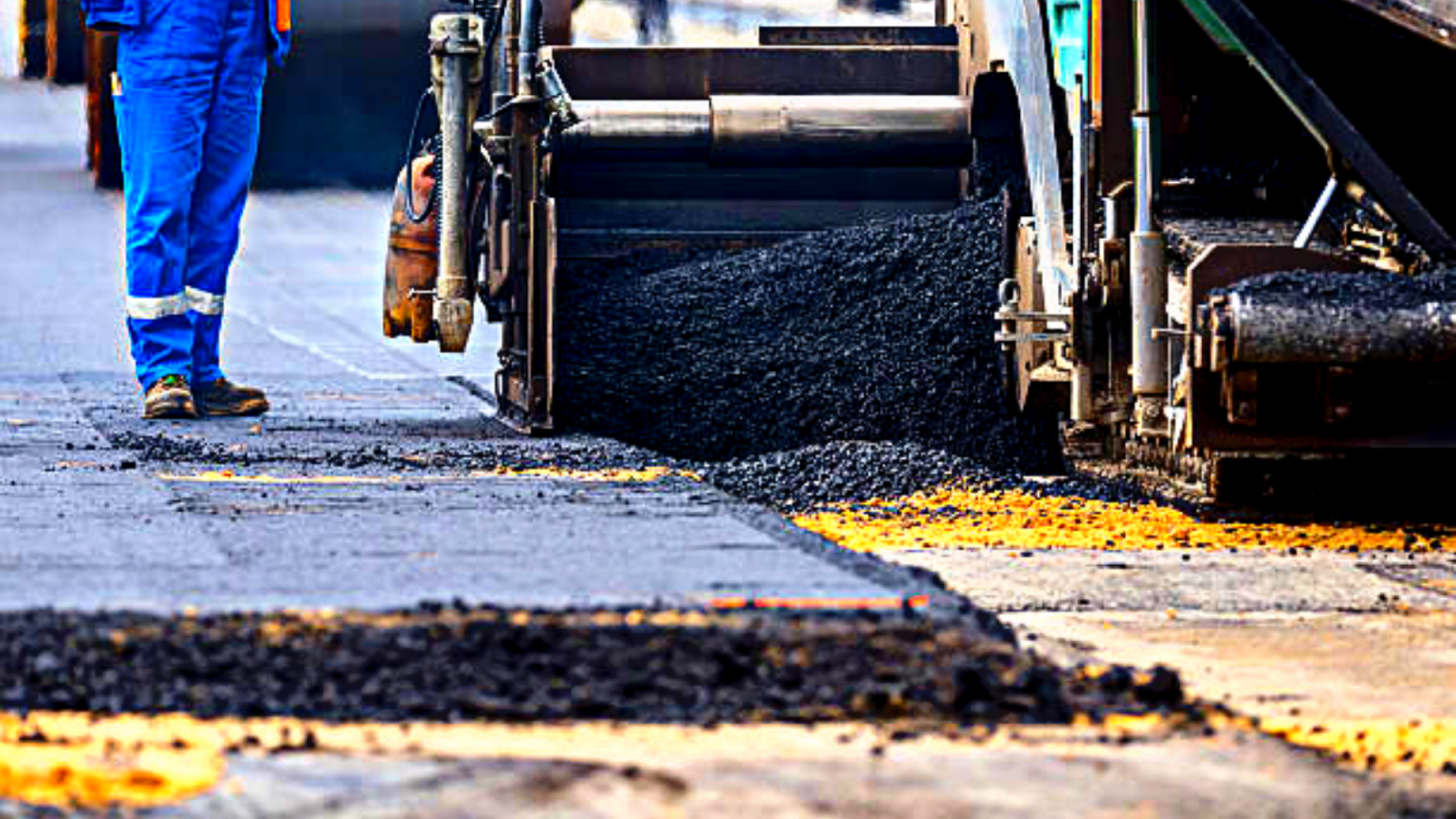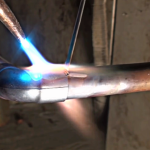
The types of asphalt mixture required for any specific paving or repair job are mostly determined by the type of work required, the geographical climate, and the amount of damage.
What is Asphalt?
Asphalt is a sustainable paving solution composed of aggregates, binder, and filler. Aggregates are processed mineral aggregates such as crushed rock, sand, gravel, slags, or different recyclable materials. A binder is used to bind the aggregates together to make a cohesive mixture. The most common binder is bitumen.
Asphalt is the most popular and widely used paving material in the world, and for good reason. It is safe, adaptable, resilient, reusable, and reasonably inexpensive, among other benefits.
There are several types of asphalt pavement based on the variations of asphalt utilized in pavement design. The following are the five most frequent types of asphalt pavement used in construction:
Dense-Graded Asphalt Pavement
Dense-graded asphalt is a type of hot-mix asphalt that contains fine-or coarse-graded aggregates that are tightly packed. It’s designed, mixed, and poured to form a dense, impervious pavement layer.
Dense-graded asphalt pavement works admirably under all traffic circumstances.
Hot Mix Asphalt Pavement
Hot mix asphalt is the most commonly used types of asphalt on road pavements. It is a versatile combination of fine and coarse aggregate and asphalt binder that results in a highly weather-resistant pavement.
At temperatures ranging from 300 to 350 degrees Fahrenheit, hot mix asphalt is heated and poured. While it is easy to deal with when hot, it cools down fast, necessitating a high level of competence in its application.
Cold Mixed Asphalt Pavement
Cold mix asphalt pavements are made with cold mix asphalt, which does not need heating. Cold mix asphalt takes longer to cure and harden, hence these pavements are soft and have a shorter life expectancy.
Cold mix asphalt pavements are utilized in areas where hot mix asphalt cannot be used due to cold weather. It is used as a temporary fix for asphalt cracks and potholes until a permanent issue is resolved.
Porous Asphalt Pavement
Porous asphalt pavement has tiny holes large enough to allow water to pass through. As a result, these pavements are built in areas prone to flooding, water pooling, etc.
This design allows water to drain through the asphalt surface and reach the soil bed. Furthermore, porous asphalt pavements are tough and long-lasting.
Warm Mix Asphalt Pavement
In the asphalt industry, warm asphalt mix is a relatively new technique. This asphalt is heated at temperatures ranging from 30 to 120 degrees Fahrenheit, which is lower than the hot mix asphalt.
It is extremely similar to hot mix asphalt, but because of its temperature, it cools slowly and may be used even during the winter months, extending the paving season. It can also be carried over longer distances without compromising quality, and it can be used more efficiently as a result of its comparatively easier and safer application.
Warm mix asphalt uses less fuel and emits fewer greenhouse gases, making it more cost-effective, environmentally safe, and safer for workers.
ALSO READ :
The Pros and Cons of Using Asphalt as a Pavement Material
Pros of Asphalt Pavement
1. Economic Benefit
Asphalt is a particularly cost-effective and time-efficient material. Asphalt dries quickly and does not require a significant period of road closure.
2. Durability
Asphalt is a weather-resistant substance that may be used for both light and heavy traffic. Asphalt can withstand even the most severe weather.
3. Safety
Asphalt paved roads will have a smooth finish. It provides drivers with improved visual contrast between road markings, skid resistance, and splash back.
4. Recycling
Asphalt is a material that may be recycled. You can reuse it indefinitely since its lifespan is infinite. When fixing a road, all dug up asphalt may be reused for resealing.
5. Maintenance
When it comes to maintenance, asphalt is both time-efficient and simple. If you do periodic maintenance on your asphalt, you can postpone the degradation of the surface.
Cons of Asphalt Pavement
1. Sealing and Maintenance
Asphalt pavement requires more maintenance than concrete. To keep it from breaking, you need to reseal it every 3-5 years. You don’t have to drive on the surface for hours or days after applying sealer.
2. Cracks
Asphalt will deteriorate if it is not properly mixed and placed. You should also consider uneven surfaces and past cracked surfaces before paving. Then compact them before paving.
3. Construction
Heat the asphalt to between 250 and 350 degrees Fahrenheit if you want the best results. To achieve higher compaction and a longer lifespan, the asphalt must be coated with sand or other aggregates after it has been laid on the surface.
4.Environmental Concern
Since asphalt is made from petroleum, when hydrocarbons are released, it produces pollution. Reduced asphalt, which can be used to make asphalt cement, releases more hydrocarbons.
5. Equipment
The installation of asphalt, regardless of the type, requires the use of heavy equipment. You won’t be able to lay down the asphalt unless you have paving equipment.
Asphalt Applications
Although asphalt is mostly used for road paving, it may also be used for a variety of other applications. Asphalt’s versatility is one of the reasons it is so widely used. It can be found in the following sectors, and others:
- Transportation (e.g. roads, railway beds or airport runways, etc.)
- Building construction (floorings…)
- Industrial (landfill caps, ports, work sites…)
- Recreation (bicycle paths, running tracks, playgrounds, tennis courts…)
- Agriculture (barn floors, greenhouse floors…)







